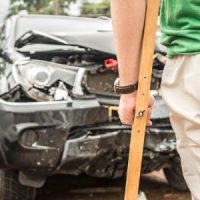What Happens After a DUI Crash?

Depending on the severity of the DUI crash, the state could file felony charges. Fines eventually get paid, probation terms eventually end, and other direct consequences fade away. But the indirect consequences of a criminal conviction, especially a DUI crash, may continue for years or decades. Additionally, these wrecks usually have consequences in civil court as well. Crash victims often file claims to obtain compensation for their injuries.
A Leesburg criminal defense lawyer challenges the often-shaky evidence in a DUI crash criminal case. This approach usually forces prosecutors to reduce serious DUI-collision charges to something less serious that has fewer direct and collateral consequences. The victims of these crashes can partner with a Leesburg personal injury lawyer and obtain compensation for their economic losses, such as medical bills, and noneconomic losses, such as pain and suffering.
Criminal Court
Higher insurance rates may be the worst indirect consequence of a DUI-collision case. In many cases, insurance rates go up so much that drivers cannot afford to buy policies. This inability creates a slew of other problems. Other indirect consequences include DUI prejudice. Many people feel that drunk drivers are reckless people who make poor decisions.
Prosecutors must establish every element of every criminal case, including a DUI, beyond any reasonable doubt. The state typically uses a blood test to prove the UI portion (under the influence) of a serious DUI crash case. If the defendant goes to a hospital, staff always take blood samples.
These samples sometimes have chain-of-custody issues. But the samples themselves are most 100 percent reliable, and accurate, in court.
The D (driving) is different. Usually, by the time first responders arrive on scene, all drivers have exited their vehicles. So, a police officer cannot testify that the defendant was driving the car. Prosecutors must rely on another witness, such as the driver of the other vehicle, to “wheel” the defendant.
Police officers are basically professional witnesses. But many lay witnesses have never testified in court before. Therefore, a Leesburg criminal defense lawyer can often undermine their credibility.
If the evidence is weak in a DUI collision case, the state often reduces the charges to ordinary DUI, or even reckless driving in some cases.
Civil Court
After a DUI crash, in addition to being witnesses in criminal court, many victims seek compensation and justice in civil court.
Regardless of the verdict, a DUI charge in criminal court makes it much easier for a Leesburg personal injury lawyer to obtain compensation in civil court. Tortfeasors (negligent drivers) could be liable for damages as a matter of law if they violate safety laws and those violations substantially cause injuries.
Alternatively, the ordinary negligence doctrine is usually available as well. Driving under the influence of alcohol violates the duty of reasonable care, which requires drivers to be at their best when they get behind the wheel. If a breach of duty substantially causes injury, compensation is available.
Since we’ve used the S-word twice, we should examine the difference between a substantial cause and a contributing cause. External factors, such as bad weather, sometimes contribute to car crashes. Driver error, such as alcohol intoxication, substantially causes them, at least in most cases.
Connect With a Tough-Minded Loudoun County Lawyer
There’s a big difference between an arrest and a conviction in criminal law. For a confidential consultation with an experienced criminal defense attorney in Leesburg, contact Simms Showers, LLP, Attorneys at Law. We routinely handle matters throughout Northern Virginia.
